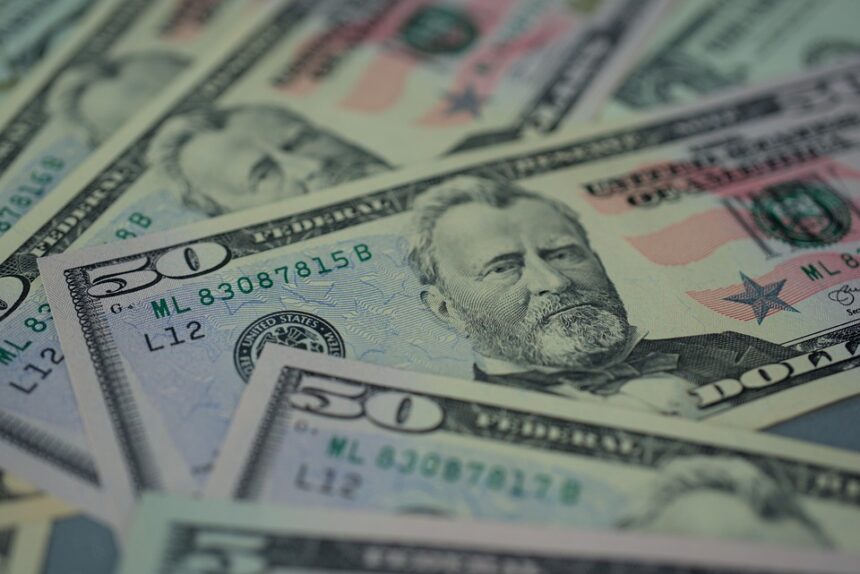A standard monetary wrestle for Individuals is deciding how a lot cash to commit to financial savings versus paying down debt. Whereas the reply varies on a case-by-case foundation, it’s usually essential to strike a steadiness between the 2.
Wiping out high-interest debt on a well timed foundation will scale back the quantity of whole curiosity you’ll find yourself paying, and it’ll liberate cash in your finances for different functions.
However, not having sufficient emergency financial savings can result in much more bank card debt once you’re hit with an unplanned expense. Greater than 2 in 5 (43 p.c) of U.S. adults with a steadiness on their bank card say emergency or sudden bills are the explanation for having this debt from month to month, in response to Bankrate’s Credit score Card Debt Survey.
Whereas there’s no proper reply for everybody on the way to juggle debt reimbursement and saving cash, listed below are a number of eventualities for when every alternative makes extra sense.
Bankrate’s insights on bank card debt and financial savings plans
- Solely 44% of Individuals would pay for an sudden expense of $1,000 or extra from their financial savings, in response to Bankrate’s Emergency Financial savings Report.
- 36% of individuals say their bank card debt is larger than the quantity of their emergency financial savings, in response to Bankrate’s Emergency Financial savings Report.When requested what’s the next precedence in the intervening time, 25% of U.S. adults surveyed mentioned paying down debt, 28% mentioned rising emergency financial savings and 36% mentioned specializing in each on the identical time, in response to Bankrate’s Emergency Financial savings Report.Of U.S. adults who’ve emergency financial savings in any respect, 59% mentioned they’re uncomfortable with how a lot they’ve in emergency financial savings, in response to Bankrate’s Emergency Financial savings Report.
- When requested the minimal quantity of emergency financial savings it might take to really feel comfy, 89% of individuals responded they’d want sufficient to cowl three months of bills, in response to Bankrate’s Emergency Financial savings Report.
When to make saving a precedence
Listed below are some legitimate causes for placing extra of a give attention to saving cash than decreasing debt:
Debt with a really low rate of interest: Almost half (44 p.c) of American credit score cardholders carry debt from month to month, in response to Bankrate’s Chasing Rewards in Debt Survey. In the event you carry a steadiness that occurs to be at a really low rate of interest, it might make sense to save lots of first, says Melissa Pleasure, an authorized monetary planner and founding father of Pearl Planning, a monetary planning and wealth administration observe in Dexter, Michigan.
Entry to an employer 401(okay) match program: Inadequate retirement funds generally preserve individuals from monetary safety, with 41 p.c citing it as a motive they’re not financially comfy, in response to Bankrate’s Monetary Freedom Survey. In case you have a retirement financial savings plan by your job, it might include an employer match. Attempt to contribute no less than sufficient to get the utmost employer match, which is basically free cash you might be lacking out on.
No emergency financial savings: The highest motive to make saving the next precedence than paying down debt is to construct your emergency fund. Over half (59 p.c) of individuals say they’re uncomfortable with their degree of emergency financial savings, in response to Bankrate’s Emergency Financial savings Report. Within the absence of such financial savings, you might merely wind up including to your bank card debt to pay for an sudden expense.
“In the event you don’t have any financial savings, focusing solely on paying debt can backfire when sudden wants or prices come up,” Pleasure says. “You may must borrow once more, and debt can develop into a revolving door.”
How a lot ought to I save?
Consultants suggest constructing an emergency fund of three to 6 months’ value of bills and stashing it in a high-yield financial savings account. Some even suggest placing sufficient money within the financial institution to have the ability to pay your bills for a complete 12 months.
However it’s a must to begin someplace. Aaron Graham, a tax planner with Holistiplan, suggests beginning first with a aim to cowl a single month’s bills.
“There isn’t a excuse for not saving for these emergencies,” Graham says. “It’s not a query of if they may occur, however when; plan accordingly.”
Within the course of of creating emergency financial savings, it’s essential to retailer these funds in a financial savings account that’s handy and earns a aggressive rate of interest. Discovering a top-yielding financial savings account means you’re getting extra money in return in your financial savings.
Build up your emergency fund usually goes hand in hand with creating and following a finances. Along with incorporating line gadgets into your finances for issues like mortgage or lease, utilities, transportation and groceries, embody line gadgets for {dollars} you’ll commit to financial savings every month. Examples embody an emergency fund, a down cost on a house or a automotive, or a trip fund.
Getting ready for financial challenges in 2024
A little bit of superior preparation will help you climate any difficulties it’s possible you’ll expertise this 12 months relating to your revenue and bills. Making an allowance for each private monetary habits and the bigger financial panorama is essential for making knowledgeable selections about your debt and financial savings.
Rates of interest took the elevator going up however will take the steps coming down. Rates of interest received’t fall quick sufficient to bail debtors out of a nasty scenario, so proceed to prioritize aggressive debt reimbursement slightly than ready on decrease rates of interest. Using zero-percent steadiness switch presents can jumpstart your debt reimbursement efforts by insulating you from excessive rates of interest and facilitating faster progress on paying down bank card debt.
— Greg McBride, CFA , chief monetary analyst for Bankrate
It might be tempting to show to bank cards when financial challenges come up. However relying too closely on bank cards can shortly result in accumulating unmanageable debt with excessive rates of interest.
The issue of bank card debt is particularly pronounced amongst these with decrease incomes. Greater than half (57 p.c) of cardholders with annual family incomes under $50,000 carry bank card debt; by comparability, 38 p.c of these making $100,000 or extra carry bank card debt, in response to a Federal Reserve research.
Getting ready for financial challenges and dwelling inside your means, particularly throughout unsure instances, could be a key technique to keep away from falling into the entice of debt.
Lowered revenue
The chances of a recession occurring between March 2024 and March 2025 is 33 p.c, in response to Bankrate’s Financial Indicator Survey. That’s down from 45 p.c within the fourth quarter of 2023.
If you end up laid off from work, you may count on to spend round 5 to 6 months trying to find a brand new job, in response to some stories.
One other widespread sufficient motive for locating your self with diminished revenue is switching to a brand new job that earns much less cash than your earlier job introduced in.
Continued excessive costs
Inflation rose 3.3 p.c in Might 2024 from a 12 months prior, as measured by the Shopper Worth Index (CPI). Final 12 months, in Might 2023, the CPI was rising by 4 p.c.
Inflation has slowed, with the efforts of the Federal Reserve to gradual the economic system, however costs — notably in companies and housing — are nonetheless excessive.
Though excessive costs and the excessive price of borrowing can eat into your finances, charges are additionally excessive on financial savings accounts. Meaning there’s a possible so that you can earn extra in return in your financial savings.
Adjusting to revenue discount and worth hikes
Being proactive about your funds can provide stability when confronted with an elevated price of dwelling or a discount in revenue. With a wholesome emergency fund, you may tackle such challenges with out resorting to accruing debt. Avoiding extra debt might be vital provided that, amongst those that say cash has a destructive influence on their psychological well being, 47 p.c cited debt as a trigger, in response to Bankrate’s Cash and Psychological Well being Survey.
If you end up out of a job, with the ability to dwell off cash within the financial institution means you received’t really feel the necessity to tackle the primary job alternative that comes your approach. Having a financial savings cushion additionally turns out to be useful within the occasion you determine to change to a brand new job that earns much less cash than your earlier one.
A potential loss in revenue will likely be simpler to deal with if you happen to work to deliver down your bills now. One step you may take is reaching out to lenders and suppliers to see about reducing your month-to-month payments.
“It may be straightforward to imagine that no matter quantity seems in your month-to-month invoice is about in stone, and for some municipal utilities like water and electrical energy that could be the case,” says Tony Wahl, a credit score and mortgage professional at Credit score Sesame in Mountain View, California. “Nevertheless, typically subscription companies like phone, cable and web service might be negotiated. This will help prioritize your payments and liberate a few of your accessible money to be added to your financial savings.”
When to prioritize debt reimbursement
When you may have high-interest client debt, paying it down first will help you clear up ongoing issues with managing your cash. The extra you scale back your principal and the quantity of curiosity you owe, the extra money you’ll have in your finances every month to commit to financial savings or different line gadgets.
Get began with repaying your debt by following these 4 steps:
- Calculate your expendable revenue. That is what’s left over after you pay for housing, utilities, transportation, meals, and so forth.
- Checklist your common bills. Embrace all the pieces from month-to-month payments to belongings you pay for lower than as soon as a month. See if there’s something you may scale back or get rid of.
- Create a finances primarily based in your revenue and bills. Embrace line gadgets for any and all month-to-month debt repayments.
- Determine monetary objectives and add them to your finances. Create line gadgets for something from saving for a down cost on a home to saving for a trip.
Tara Alderete, director of enterprise studying at Cash Administration Worldwide, says it normally is smart to prioritize debt discount general, however there are exceptions.
“If you have already got sufficient financial savings in your emergency fund, it’s possible you’ll need to give attention to shortly eliminating debt,” Alderete says. “Nevertheless, if you end up making solely minimal funds on money owed with extraordinarily excessive rates of interest, these money owed could also be inflicting you to lose cash and stopping you from reaching your general monetary objectives, and it’s possible you’ll need to give attention to paying off that pricey debt.”
As Alderete sees it, an essential a part of constructing a finances is focusing in your precedence bills first, so as to liberate cash to place towards a debt discount plan whereas hopefully nonetheless with the ability to contribute to an emergency fund.
When to pay debt first
- In case your money owed have excessive rates of interest that may snowball if not paid off.
- In case your debt is inflicting you important stress or anxiousness.
- If a big portion of your revenue goes towards month-to-month debt funds and limiting monetary flexibility.
You should utilize a debt administration calculator to find out how a lot you need to contribute to repay your debt.
Subsequent steps to steadiness your financial savings and debt
With regards to debt reimbursement, select a method that works greatest for you. Choices embody paying off your highest-interest debt first, paying off the smallest debt first or paying the money owed first that almost all have an effect on your credit score rating.
Debt consolidation could also be a good suggestion when you have a number of high-interest money owed. Combining them into one new mortgage will help you qualify for a decrease rate of interest, and it conveniently permits you to mix a number of funds into one.
Build up your financial savings every month as you pay down debt ensures you’ll have funds available to cowl unplanned bills that will in any other case put you deeper into debt.
For a lot of, one of the best resolution is to strike a steadiness between saving cash and paying off debt.
“The selection of debt reimbursement or financial savings will not be an either-or proposition,” says Greg McBride, CFA, Bankrate’s chief monetary analyst. “You may, and may, give attention to each on the identical time. Automate financial savings proper off the highest by payroll deduction and direct deposit, then use take-home pay to maximise the debt reimbursement effort. A financial savings cushion is the buffer between you and extra high-cost debt when unplanned bills come up, and time is your biggest ally when saving for longer vary objectives, so don’t delay getting began on financial savings.”
Backside line
Discovering the appropriate steadiness between debt reimbursement and saving is important for monetary stability. By making a finances and setting objectives, you may successfully handle your funds and put together for potential monetary challenges. It’s additionally essential to often reassess and modify your plan as wanted. It’s by no means too late to start out saving and paying off debt. The secret’s to take motion and keep constant.
–Bankrate’s Sheiresa McRae Ngo up to date this text.





